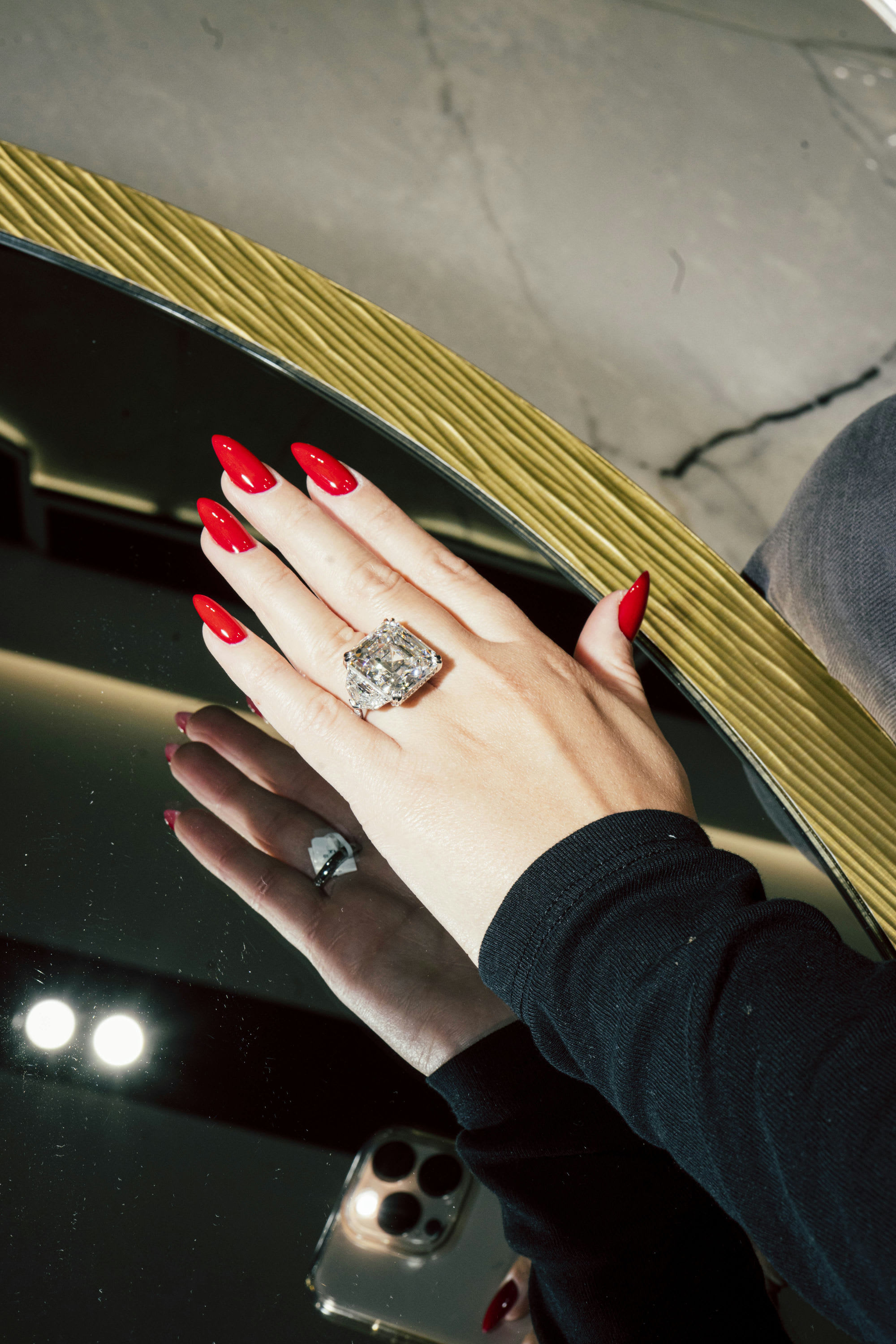Is Tiffany & Co. Amazon-proof?
Though many major American retailers have had their foundations shaken by Amazon (AMZN) and the wider explosion in e-commerce, Tiffany & Co. (TIF) appears to be a rare diamond in the rough of brick-and-mortar retail.
Exhibit A: The company's stock price has jumped nearly 30 percent over the last year, even as department stores like Macy's (M), J.C. Penney (JCP) and Sears struggle with shrinking growth.
Analysts point to several reasons why Tiffany's, despite a recent dip in sales, remains in favor among investors. Those include the touch-and-feel experience of shopping for fine jewelry, the company's potent brand, and a global, and well-heeled, customer base.
Another advantage is Tiffany's small physical footprint of 125 stores in the U.S. and roughly 300 total worldwide. Its stores also are in upscale malls, which have been less affected by the mass department store closings that have affected other malls.
That helps keep Tiffany's operating costs low and its stores churning out profits, with sales of around $2,600 per square foot in 2016 and a sparkling 62 percent gross profit margin.
Like other retailers, of course, Tiffany must cope with the impact of e-commerce and, as ever, the changing tastes of consumers. To that end, it recently named Alessandro Bogliolo, a veteran of luxury retail who is known for his ability to revamp brands like Bulgari, as its new CEO.
As with many luxury retailers, Tiffany also is looking to add millennial buyers that may be more interested in experiences and paying down student loans than spending on big-ticket jewelry. The trick is to attract younger shoppers while maintaining its core high-end client.
One way to appeal to younger buyers is by offering lower-priced fashion jewelry, which does not include gemstones and carries a lower price tag than fine gemstone jewelry. The fashion jewelry category was responsible for 33 percent of Tiffany's sales in 2016.
Edward Jones analyst Brian Yarbrough said the company must be cautious about not devaluing its brand. While having different price points opens the door to a different mix of consumers, "You have to be careful -- they had this problem in the early 90s… People who are buying $20,000 or $30,000 pieces don't want teens running around," he said.
Retail consultant Howard Davidowitz, CEO of Davidowitz & Associates, said that for Tiffany to retain the luxury customer, the company might consider looking to do an offshoot for fashion jewelry or acquire a brand like Pandora to appeal to a different kind of consumer.
"If you have a store and you load the store up with a lot of middle-level merchandise because you are trying to sell to tourists and everyone else, they are going to want to buy a small item and get the Tiffany bag. If you do that, you are a going to lose luxury customers. I don't think there's any way to do it unless you can come up with a store within a store strategy -- there is clarity in that." he told CBS MoneyWatch.
In reporting its first-quarter earnings, the company laid out a new strategy for driving growth, including finding ways to more effectively engage with customers, adding new products, and revamping or even closing some stores.
Yarbrough said Tiffany needs to refresh its product line and improve its marketing, while adding that a greater focus on supply-chain efficiency could boost the retailer's profit margin. But he also thinks that the company's core strengths -- its allure in overseas markets and high-end jewelry niche, in which customers want to make purchases in person -- help buffer it from the competitive ravages of e-commerce.
"We think it's a brand, as well as a retailer, that is more Amazon-proof," he said.
Echoing this theme, Cowen senior retail analyst Oliver Chen wrote in a recent note, "In our view, Un-Amazon-Able qualities include... store and vertical integration focus at Super-Premium luxury stocks (Tiffany, LVMH, Sotheby's)," he said in a recent note.
But Tiffany can't rest on its diamond-studded laurels, Davidowitz said, noting that high-end clothing retailers with strong brands have been hurt by e-commerce and that Amazon could eventually decide to encroach on the jeweler's turf.
"They have to have a plan to address the gigantic change taking place... Now is the time to do it. There is no way to say people are not going to buy jewelry online."
Milton Pedraza, CEO of retail research group the Luxury Institute, said the key for Tiffany is to foster strong relationships with customers built on its compelling products and prestigious brand.
"I think the world will become a barbell -- at the one end it will be Amazon, commoditized products -- and then there will be real luxury," he said. "There are a lot of 'luxury' pretenders....Tiffany is no pretender. I think they will continue to survive and thrive."



